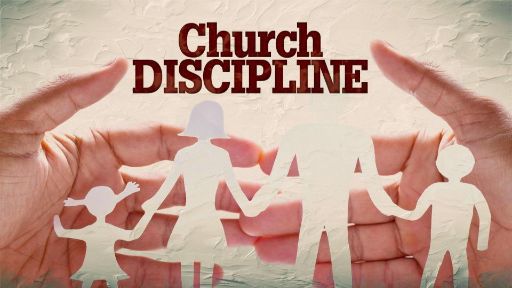-
Working And Eating
Contributed by Christopher Holdsworth on Sep 26, 2020 (message contributor)
Summary: If anyone does not wish to work, neither let him eat.
WORKING AND EATING.
2 Thessalonians 3:6-13.
Having expressed his trust in the Lord that they will already be doing the things with which he charges them (2 Thessalonians 3:4), the Apostle Paul now charges the brethren in Thessalonica - “in the Name of our Lord Jesus Christ” - to withdraw from every brother who is walking in a disorderly manner (2 Thessalonians 3:6).
The first thing to notice is the source of the authority which the Apostle claims. It is “in the name of our Lord Jesus Christ” that he charges the orderly (2 Thessalonians 3:6); and “by our Lord Jesus Christ” that he charges and exhorts the disorderly (2 Thessalonians 3:12).
The second thing to notice about this passage is that it is addressed to “brethren”, i.e. the Church (2 Thessalonians 3:6; cf. 2 Thessalonians 3:1; 2 Thessalonians 3:13). It is a “brother” (or rather, more than one of them) who is walking in a “disorderly” manner (2 Thessalonians 3:6). Later Paul will underline this by saying, ‘if anyone does not obey our word by (this) epistle, mark that (man) and do not associate with him, that he may be ashamed; yet count him not as an enemy but admonish him as a ‘brother’” (2 Thessalonians 3:14-15).
One part of this disorderly behaviour is summed up in the charge, “if anyone does not wish to work, neither let him eat” (2 Thessalonians 3:10). We are not dealing here with the beggar on the High Street, or society’s ‘idle rich’, or people who will not pull their weight on the factory floor. We are talking about the type of ‘brother’ who will turn up at a Church event to partake of the food provided by others but will not himself contribute anything at all to the work of the Church.
Paul is not ashamed to hold up the Apostolic example: “Imitate us: we were not idle when we were among you. We did not eat our bread for nothing, but we worked night and day that we might not be burdensome to any” (2 Thessalonians 3:7-8). Even when ‘unemployed’, ‘retired’, or less ‘able’ than they once were, Christians should never be ‘idle’!
It is not that the Apostles did not have the authority (2 Thessalonians 3:9). Those who labour in the Word are worthy of their reward (cf. 1 Timothy 5:17-18). However, they chose to make their own living, despite the rigours of preaching the gospel of Christ (cf. 1 Thessalonians 2:9).
A second aspect of the disorderly behaviour, perhaps arising from being idle, was that there were those who were “not at all working but being busybodies” (2 Thessalonians 3:11). Not really "working" but working mischief. Not busy, but “busybodies”.
The Apostle has stern, but fair, words for such (2 Thessalonians 3:12; cf. 1 Thessalonians 4:11). Settle down and earn the bread you eat!
As for the other brethren, literally, “do not lose heart in well doing” (2 Thessalonians 3:13).
There is one final point of application to be made here. There are those who partake of the spiritual feast provided by the Church in our services of worship. We listen to the Bible reading, we enjoy the preaching. We say ‘Amen’ to the prayers. We partake of the Communion.
This does not excuse us from nurturing our own relationship with the Lord. We need to read, study, meditate upon the Bible for ourselves. We need to pray our own prayers, and to listen to the Lord for ourselves. If we will not “work” at it, we will not “eat” of it (2 Thessalonians 3:10). Amen.

 Sermon Central
Sermon Central



